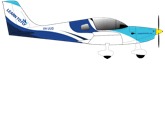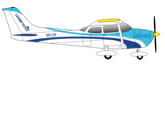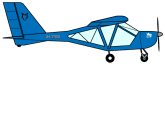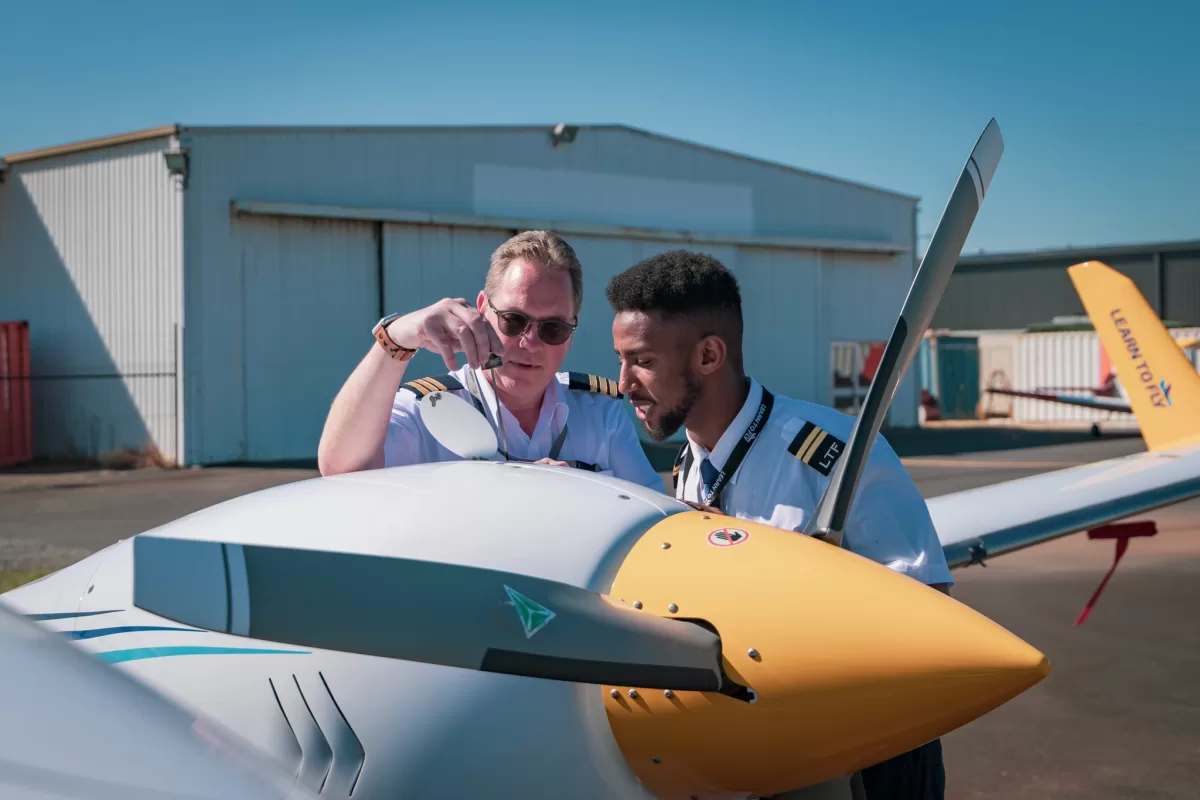
August 14, 2024
The Ethics and Professionalism Expected Within Flight School
Flight instructors contribute to successful pilots entering the skies and help shape the future of aviation.
They are responsible for teaching the technical skills required to fly an aircraft but also for instilling the values of safety, professionalism, and ethical behaviour in their students.
However, students are also expected to practice the professionalism and ethical standards taught to them during their courses.
Ethical standards of flight instructors
1. Commitment to safety
Flight instructors must prioritise safety above all else. This means adhering to all regulatory requirements, ensuring aircraft are in optimal condition, and teaching students to recognise and mitigate risks. Instructors should create a learning environment where students feel comfortable discussing safety concerns.
2. Integrity and honesty
Integrity and honesty are vital traits for flight instructors. They must be truthful in their assessments of a student’s abilities and progress. Providing honest feedback, even when it is difficult, is essential for the student’s development. Instructors should also be transparent about their qualifications and experience, ensuring students trust their guidance.
3. Fairness and impartiality
Flight instructors must treat all students fairly and impartially. This includes providing equal opportunities for learning and advancement, regardless of the student’s background or personal characteristics. Instructors should avoid favouritism and ensure that assessments are based solely on the student’s performance and merit.
4. Confidentiality
Instructors often have access to sensitive information about their students, such as personal backgrounds and performance records. It is essential to maintain the confidentiality of this information, sharing it only with authorised individuals and for legitimate purposes.
5. Professional boundaries
Maintaining professional boundaries is crucial for flight instructors. They should cultivate a supportive and respectful learning environment while avoiding any behaviour that could be perceived as inappropriate or unprofessional. This includes refraining from forming personal relationships with students that could compromise the instructional dynamic.
Professionalism expectations for flight instructors
1. Continuous learning and development
Flight instructors must commit to continuous learning and professional development. Staying current with the latest advancements in aviation technology, regulations, and teaching methodologies is essential. Engaging in professional development opportunities, such as attending seminars or enrolling in advanced courses helps instructors maintain high standards of instruction.
2. Effective communication
Instructors must be able to convey complex concepts in an understandable manner, provide constructive feedback, and listen actively to their students. This includes being patient and supportive, ensuring students feel comfortable asking questions and expressing concerns.
3. Punctuality and reliability
Professionalism also entails being punctual and reliable. Instructors should be on time for lessons, prepared with the necessary materials, and consistent in their instructional approach. This demonstrates respect for the student’s time and creates a structured learning environment.
4. Dress code and presentation
Flight instructors should adhere to a professional dress code, presenting themselves in a manner that reflects the seriousness and responsibility of their role. This includes wearing appropriate attire, maintaining personal hygiene, and presenting a positive image of the aviation profession.
5. Mentorship and support
Beyond teaching technical skills, flight instructors serve as mentors and role models for their students. Providing guidance on career paths, sharing industry insights, and supporting students through challenges are integral parts of the instructor’s role. This mentorship helps students develop both professionally and personally.
Expectations for students
Respect and professionalism
Students should treat their flight instructors with the same level of respect and professionalism that they expect in return. This includes addressing instructors appropriately, being punctual for lessons, and adhering to the established dress code and behavioural standards.
Active engagement
Active engagement in the learning process is essential for student success. Students should come to lessons prepared, participate actively, ask questions, and seek clarification when needed. This demonstrates a commitment to their learning and respect for the instructor’s efforts.
Openness to feedback
Receiving feedback is a critical component of flight training. Students should be open to constructive criticism, view feedback as an opportunity for growth, and implement suggested improvements. This mindset builds a positive learning environment and accelerates skill development.
Accountability
Students must take responsibility for their actions and decisions. This includes adhering to safety protocols, completing assigned tasks, and acknowledging mistakes. Accountability is a key aspect of professional development and builds trust between the student and instructor.
Communication
Effective communication is a two-way street. Students should communicate openly with their instructors, sharing any concerns or difficulties they may be experiencing. This transparency helps instructors tailor their teaching approach and provide the necessary support.
Building a positive instructor-student relationship
Mutual respect
A successful instructor-student relationship is built on mutual respect. Both parties should value each other’s time, effort, and expertise. This respect creates a positive and productive learning environment where students feel valued and motivated to excel.
Clear expectations
Setting clear expectations at the outset of the training process is crucial. Instructors should outline the course objectives, assessment criteria, and behavioural standards. Students should understand what is expected of them and strive to meet these standards.
Supportive environment
Creating a supportive environment is essential for effective learning. Instructors should encourage students to ask questions, seek help, and express concerns without fear of judgment.
Feedback mechanism
Implementing a structured feedback mechanism helps both instructors and students. Regular progress reviews, constructive feedback sessions, and open discussions about performance ensure that students stay on track and instructors can adjust their teaching methods as needed.
Professional growth
Both instructors and students should view the training process as an opportunity for professional growth. Instructors should continually refine their teaching skills, while students should aim to develop technical proficiency and professional attributes that will serve them throughout their aviation careers.
Ethics and professionalism are fundamental components of flight instruction. Flight instructors are responsible for teaching the technical skills required to fly and instilling the values of safety, integrity, and professionalism in their students. By adhering to high ethical standards and maintaining professionalism in all aspects of their work, instructors set a positive example for their students.
Similarly, students must treat their instructors with respect, engage actively in the learning process, and take responsibility for their actions. Building a positive instructor-student relationship based on mutual respect, clear expectations, and supportive communication is key to successful flight training.
Any aviation academy in Australia will emphasise these principles, ensuring that aspiring pilots receive the highest standard of training.
For those pursuing a commercial pilot licence in Australia, it begins with high-quality instruction and the development of a professional mindset. Enrolling in a flight instructor course in Australia offers is an excellent step for those looking to impart their knowledge and passion for aviation to the next generation of pilots.


